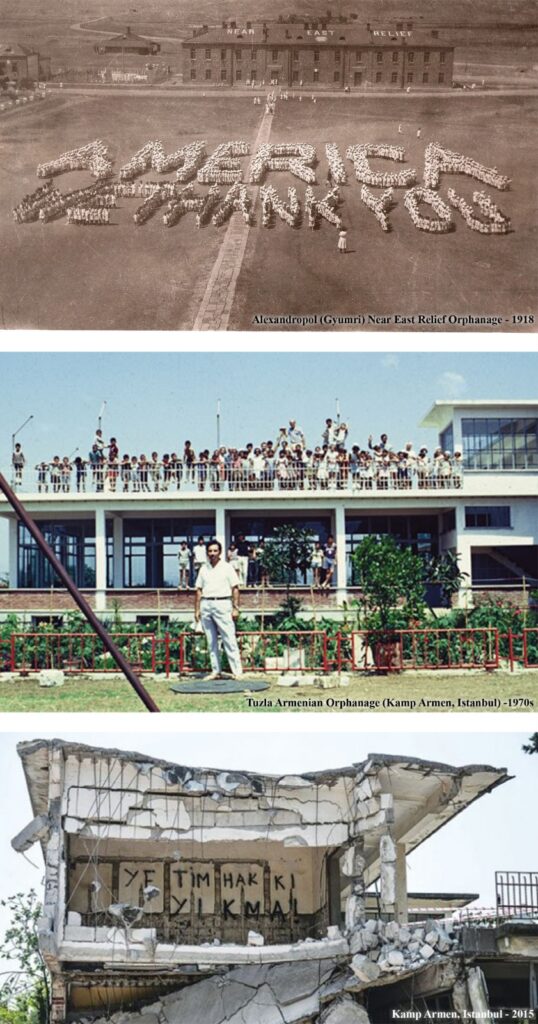
Aslıhan Günhan works on non-hegemonic histories of architecture in West Asia in the 20th century through displacement. This lecture, “Architecture Against Displacement,” examines the displacement of family care, the architectures and environments of humanitarianism for orphaned children, and the emergence of racial categories in the Western world directed toward the Ottoman Empire. Using Kamp Armen as a modernist and decolonial response to the imperialist scramble for humanitarianism, the talk will expand the architecture of missionary aid programs, the idea of self-help and self-sufficiency in the built environment, the production of nature for orphans, and labor and materiality.
What happens when a population of approximately one million people is forcefully displaced and exiled in the early 20th century, while their homes, properties, agricultural lands, documents, and fragments of memories remain in various forms? While there is an ongoing debate about the repatriation of indigenous lands and stolen cultural objects in Europe and the US, Turkey’s own history of displacement and its lingering effects on the built environment and rural landscapes is at the center of an effort to rewrite a more inclusive and ethical architectural history for the region. The broader project, “Displaced Modernities: The Ottoman Empire, Turkey and the Specters of Armenian Architects,” is a non-hegemonic architectural history of modernism in West Asia, which looks at architectural heritage as a collection of tectonics and labor, land as an economic and physical artifact, fragments of the built environment, intact or in ruin, and citizenship as it relates to rights to land and property. After briefly introducing the larger project, this lecture will focus on a specific section, “Architecture Against Displacement” which studies the displacement of family care, the architectures and environments of humanitarianism for orphaned children, and the emergence of racial categories in the Western world directed toward the Ottoman Empire. Using Kamp Armen as a modernist and decolonial response to the imperialist scramble for humanitarianism, the talk will expand the architecture of missionary aid programs, the idea of self-help and self-sufficiency in the built environment, the production of nature for orphans, and labor and materiality.
Biography:
Aslıhan Günhan is a PhD candidate in the History of Architecture and Urban Development Program at Cornell University. Her research investigates the non-Western histories of architectural modernity, and her doctoral project is an architectural history of the displacement of Armenians from the Ottoman Empire, with questions of migration, dispossession, ruination, retrofitting, and self-help. Gunhan’s research has been supported by the Getty Research Institute, Social Science Research Council, Andrew W. Mellon Foundation, Einaudi Center Institute of European Studies, and SALT. She completed her architecture degree (B.Arch, M. Arch, and minor in City Planning) at the Middle East Technical University in Turkey. Previously she was a Fulbright Scholar at Columbia GSAPP, held a service position at the Society of Architectural Historians, a research position at MoMA, and teaching positions at Cornell and METU.

